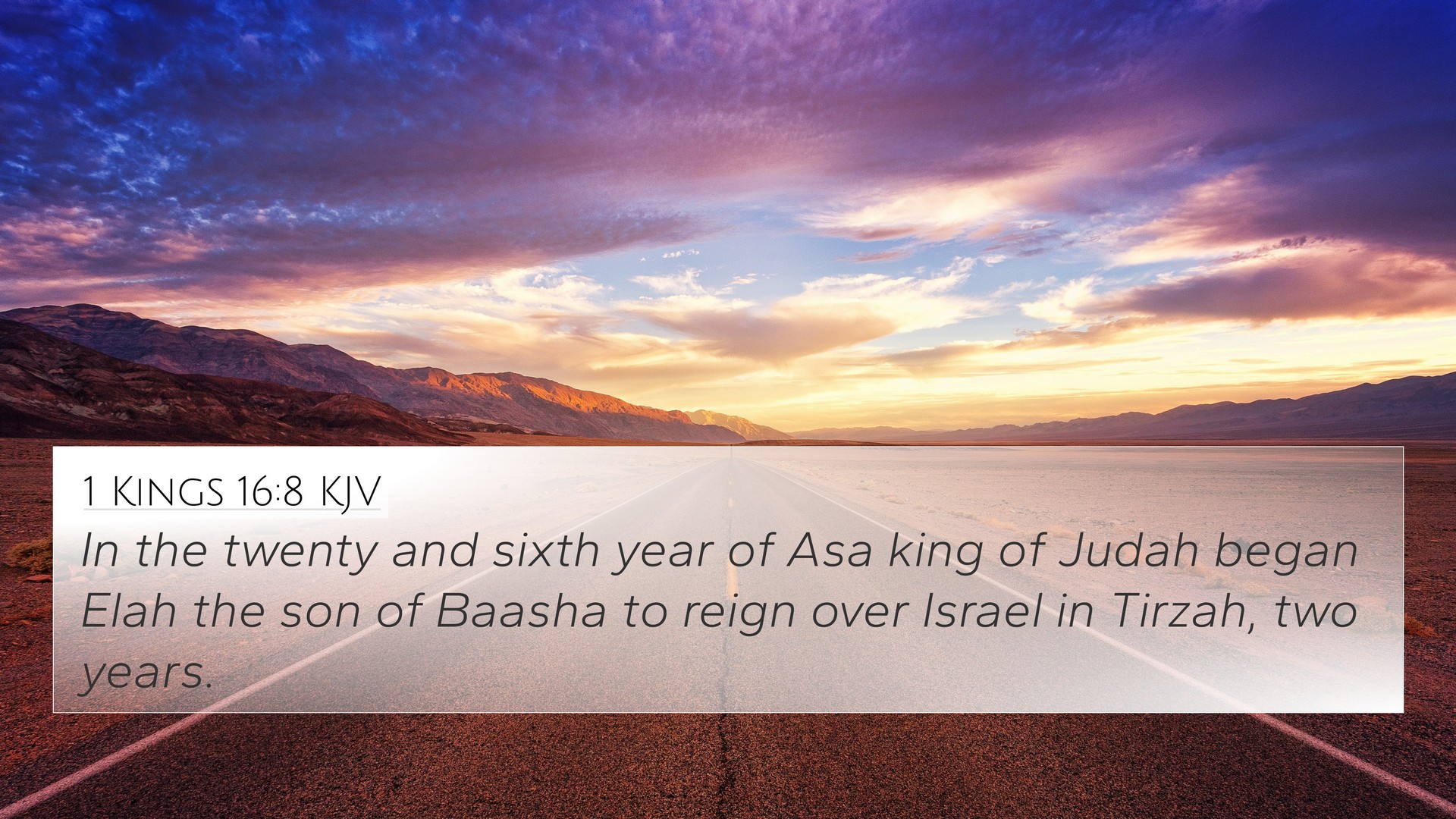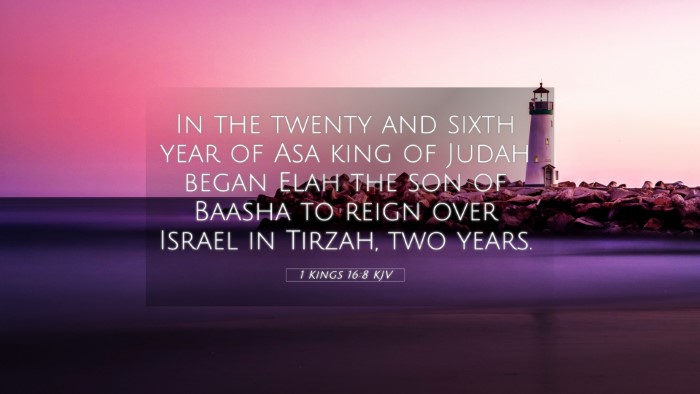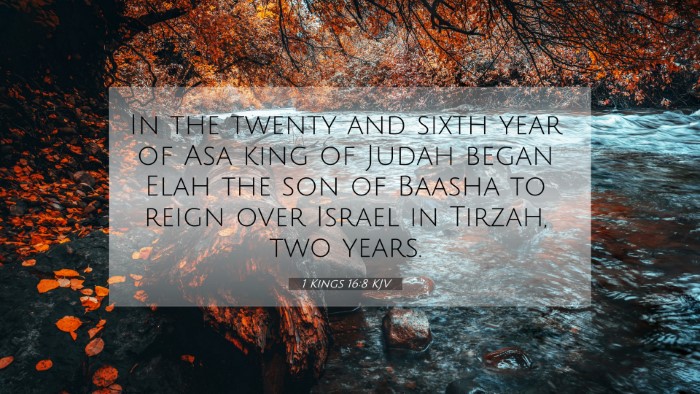Understanding 1 Kings 16:8
1 Kings 16:8 states: "In the twenty-sixth year of Asa king of Judah began Elah the son of Baasha to reign over Israel in Tirzah, and reigned two years." This verse marks a significant point in the history of Israel during a time of political instability and moral decline.
The context of this verse is crucial for understanding its implications. Elah, the son of Baasha, reigned for a notably brief period, indicative of the turbulent era marked by rapid succession and assassination among Israel's kings. This commentary synthesizes insights from various public domain sources to elucidate the meaning of this verse.
Context and Historical Background
During the reign of Asa in Judah, Israel was experiencing a series of controversial kingships. Elah's tenure is juxtaposed with the chronic instability in Israel, which had turned away from the worship of Yahweh towards idolatry. Matthew Henry observes that, "this reign was marked by sin, contempt of God, and a neglect of the duties aligned with true worship."
Commentary Insights
-
Matthew Henry: He notes the significance of Elah's short reign as a reflection of God's judgment on Israel for its continual disobedience and idolatry. The briefness of his rule emphasizes the lack of divine favor.
-
Albert Barnes: Barnes highlights the political instability and the fact that Elah’s rule was characterized by an absence of notable achievements or reforms. He underscores that a leader should lead the people back to God, something Elah failed to do.
-
Adam Clarke: Clarke provides a perspective on the personal failures of Elah as a king, suggesting that his indulgences contributed to his downfall. He possessed little strength or virtue to maintain the throne and keep the kingdom united.
Inter-Biblical Connections
The reign of Elah can be linked with several other Bible verses that stipulate the characteristics and consequences of poor leadership. Here are some relevant cross-references:
- 1 Kings 14:16 - God’s judgment on Israel through their leaders.
- 2 Kings 15:8-10 - Summary of the kingship failures during this epoch.
- Micah 3:1-3 - Warnings about corrupt leaders misleading their people.
- Proverbs 29:2 - A righteous leader brings joy, while a wicked one is a burden.
- 1 Chronicles 10:13-14 - The consequences of disobedience and idolatry leading to kingly downfall.
- 2 Chronicles 25:27 - Insights on following a path of unrighteousness leading to destruction.
- Jeremiah 23:1-2 - God’s anger towards shepherds who mislead His flock.
- Isaiah 3:1-5 - The removal of stable leaders as a form of divine judgment.
- Lamentations 2:9 - Commentary on the fallen state of rulers and their cities.
- Acts 12:21-23 - A New Testament reflection of God's judgment on proud rulers.
Biblical Themes and Lessons
Discerning the connections between 1 Kings 16:8 and these other scriptures points to themes of leadership accountability, the consequences of idolatry, and the necessity for divine guidance in governance.
Thematic Connections
The verse signifies the recurring biblical theme of leadership—a topic prevalent throughout the scriptures. It invites an examination of how biblical leaders, both good and bad, impact their nations spiritually and politically.
-
Leadership Accountability: Evaluating the responsibilities of leaders before God.
-
Idolatry and Disobedience: Understanding how turning away from God invites judgment.
-
Divine Sovereignty: Recognizing God’s rule over earthly kingdoms.
Cross-Referencing for Deeper Understanding
Engaging in cross-referencing biblical texts enhances our understanding of not just individual verses but the cohesive narrative of scripture. Tools for Bible cross-referencing, such as concordances and reference guides, can significantly aid in this study.
How to Use Bible Cross-References
-
Identify key themes or words in the verse you are studying.
-
Use a Bible concordance to find other scriptures that mention similar themes.
-
Visit various commentaries to gather different perspectives on the verse.
-
Reflect on how the insights from various scriptures connect and inform one another.
By utilizing cross-reference Bible study methods, you bolster your understanding of how biblical texts interact, allowing for a richer interpretation and application of the Word of God in daily life.
Conclusion
The reign of Elah, as depicted in 1 Kings 16:8, serves as a stark reminder of the consequences of failing to uphold godly principles in leadership. Through the lens of various commentaries and interconnected scriptures, we glean insights that not only explore the historical context but also apply to our spiritual walk today.


